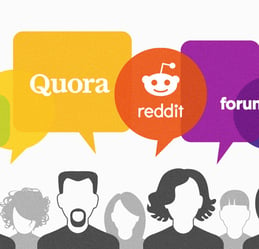Ace Your Study Game: 10 Tips for Success!
Dive into this guide to discover ten powerful study tips that can transform your learning experience :)


I know there are too many advices already available online, so many methods, so much to do. And it can be confusing, especially when you're trying to figure out how to learn more effectively. You might find yourself wondering why you remember the page number or the color of your highlights but struggle to recall the actual information you need. It’s a common frustration!
There are numerous methods out there, each designed to cater to different learning styles and capacities. That said, I’ve compiled a list of essential tips that represent just the tip (hah!) of the iceberg—a starting point for "How to Study 101." These strategies are adaptable and can be beneficial for anyone, regardless of their situation. Let’s explore these foundational techniques to help you improve your study routine and boost your retention!
1. Create a Schedule
Before beginning any task, it's essential to create a clear schedule. This should include your weekly goals, a list of daily tasks, and a checklist of things you'd like to complete by the end of each day. Time management is a critical element when making a schedule. Allocate specific amounts of time—whether minutes or hours—for each task, and set time limits for less important tasks. This way, even if you don’t finish a lower-priority task, you can pause it and move on to something more critical without losing focus.
Another thing to make scheduling easier is to break down bigger tasks into smaller chunks. Often time the goal you’re aiming for can be overwhelming with too much going on, when that happens it might make you lose spirit and derail your motivation. It’s a better way to avoid procrastination.
Keep in mind, just because you have planned to the T, doesn’t mean everything will go according to your schedule. Be flexible. Allow room for changes and unexpected challenges that may arise, and adjust your schedule as necessary. Scheduling is meant to make you productive, not just an iron rule that must be carried out. Don't be too hard on yourself if you can't follow it perfectly—there's always tomorrow to catch up.
2. Be Organized
"Order and simplification are the first steps toward mastery of a subject." – Thomas Mann
- Keep a dedicated journal/diary where you can jot down your assignments, dates for upcoming tests, deadlines, concepts that you need to you have trouble understanding, tasks accomplished, etc. This approach will help you keep track of things that needs to be done. Keep all materials related to a specific subject in one place. This includes textbooks, summaries, supplementary books, and any notes you’ve taken. By organizing everything by subject, you’ll make your study sessions more efficient and productive, as everything you need will be easily accessible for quick reference
- A clean, well-organized study space can do wonders for your focus and productivity. As the saying goes, "An organized space leads to an organized mind." Make yourself comfortable (but not too comfortable). Choose a quiet location with a proper desk and a chair that provides comfort without being too relaxing, allowing you to study for extended periods without strain.
- Pay attention to lighting—natural light is ideal, but if that’s not possible, use lighting that’s neither too bright nor too dim to protect your eyes. Maintaining a comfortable, cool temperature is also important. Keep everything you need while studying within reach to minimize distractions. Taking a moment to prepare your space will help optimize your study sessions and boost your learning efficiency.
- Lastly, organize Your Study Materials, Especially Your Notes. Note-taking is a crucial aspect of studying, as it not only enhances efficiency but also improves learning and understanding of concepts. The Generation effect—a memory phenomenon—explains how people remember information better when they actively generate it, rather than just reading it passively. In today’s tech-driven world, it's tempting to type everything because it's faster and more convenient, but research shows that writing by hand engages the brain more deeply, leading to better comprehension and retention.
3. Find your learning style
Named the VARK model of learning, Fleming theorized that we each belong to one of four main types of learners: Visual, Auditory, Reading/Writing, and Kinesthetic. These methods can help us understand our brain’s psychology and how we process information, which is crucial for academic success.
Visual Learners: You learn best through sight. Use visual aids like slides, infographics, charts, diagrams, and videos. Drawing mind maps or using color-coded notes can help you organize and retain information.
Auditory Learners: You prefer to learn through listening. Incorporate discussions, podcasts, and recorded lectures into your study routine. Reading notes out loud or joining study groups where you can explain concepts verbally will reinforce what you learn.
Reading/Writing Learners: You excel with written words. Provide yourself with reading materials such as textbooks and articles. Take detailed notes and write summaries, essays, or reflections to reinforce concepts.
Kinesthetic Learners: You learn by doing. Engage in hands-on activities, experiments, and interactive simulations. Incorporate movement into your study routine, like pacing while reviewing notes or using flashcards in a physical activity.
While it's beneficial to start by focusing on the learning style that suits you best, incorporating all styles can enhance your study experience. Begin with your preferred method to grasp the core concepts, then use other approaches for revision and reinforcement. This keeps studying interesting and mixing different styles can lead to more productive and engaging learning sessions!
4. No distractions
- Setting the stage before you start studying is essential for effective learning. A conducive environment can make all the difference. Discover where and when you study best—whether it’s at a proper desk, on the balcony, sitting on the floor, in a café, or at the library—choose the space that works for you. Timing also plays a crucial role; some people learn quickly at the crack of dawn, while others achieve peak concentration late at night.
- While it is not a common strategy for effective studying, research indicates that changing your study environment can enhance recall performance. Instead of sticking to your usual spot at home, consider exploring a new coffee shop each week or visiting your local library. A change of scenery can really refresh your mindset, making studying feel less monotonous while exploring new places can be a fun way to break the routine and spark creativity. Of course, returning to your favorite study spot when you are under pressure can be the most effective strategy.
- To maximize productivity, it's essential to eliminate distractions. You can schedule periods of focused study time, automatic switch on/off timing for your cellphone according to your needs, and take breaks as needed. Consider incorporating white noise, which can significantly enhance your attention span, especially if you find yourself easily distracted. It’s best to avoid using your smartphone for this purpose; if you must keep it nearby, put it on Do Not Disturb mode to minimize interruptions.
- Additionally, fueling your body is crucial for maintaining energy levels. Instead of breaking your flow to grab a snack, keep healthy, quick snacks on hand to replenish your energy without interrupting your study session. By creating a productive environment that minimizes distractions and meets your physical needs, you can stay focused and committed to your studies. And avoid studying anywhere near your bed or bean bag. Do social distancing with your blankets.
5. Take breaks
While minimizing distractions is important, taking breaks is equally essential for effective studying. Continuous study for long hours isn’t sustainable in the long run, except perhaps right before exams, which is understandable. On a normal basis, aim for a break every 30-60 minutes, depending on your attention capacity. If you can hold out for a full hour, that’s ideal; however, if you find your concentration wanes quickly, consider taking 5–10-minute breaks every 30 minutes. This approach allows you to recharge without losing sight of your goals. After an hour of study, take a longer break of 15-20 minutes. Instead of reaching for your smartphone, take a breather, use this time to do something engaging yet relaxing—like doodling, playing a quick game, or bothering any of your family member. These activities can help you recharge while keeping you connected to your study tasks.
You can refer to The Pomodoro Technique, which is quite similar but has a more detailed approach for taking breaks productively.
6. Reward Yourself
"Study hard, play hard" is an important balance to maintain. Rewarding yourself for completing tasks is not just a luxury—it’s a necessity. After all, hard work deserves some recognition! The reward can be anything that makes you happy—whether it’s indulging in junk food, hoarding something you know you don’t need, or allowing yourself extra screen time to make up for the hours spent away from your phone. The key is to reward yourself after reaching your study goals, ensuring that these rewards keep you motivated and help you power through your checklist. It’s your domain, so choose rewards that make you happy and keep you focused on your progress.
7. Ask for help
Don’t hesitate to ask for help when you encounter difficulties in your studies. Seeking assistance is an important part of the learning process and can enhance your understanding. Studies like Karabenick, S. A., & Knapp, J. R. (1991). Help-seeking in a learning context: A review of the literature, found that students who actively seek help tend to perform better academically. It emphasized that help-seeking is associated with greater self-efficacy and improved learning outcomes.
- If you are reluctant to approach others for your doubts, utilize Online Resources for starters. Look for tutorial videos on platforms like YouTube or educational websites regarding your query. These can provide visual explanations that clarify tough concepts.
- Make a study group, yeah I know, hanging out is more fun than studying together- but it is more fun to learn together, isn’t it? Research like Peer-Learning reviewed numerous instances of peer tutoring and found that students who engaged in peer learning not only improved academically but also developed better problem-solving skills and increased motivation.
- As students, we’ve all experienced those moments when we rush out just before an exam to ask a topper friend for a short summary of a concept and find ourselves understanding it quicker than usual. Often, this personalized approach, that is, one-on-one sessions with a friend, can lead to a clearer understanding than traditional studying methods. Especially if you are not a fan of large crowds.
- Reach out to your teachers. Don’t hesitate to ask them questions during class or office hours. Even if you think they are silly. They’re there to help you and can provide additional resources or explanations.
- And if you prefer a non-confrontational method, use online forums, there are a lot of learners ready to help each other. Join academic forums or social media groups related to your subject. These platforms can connect you with others who can offer advice or insights.
8. Review and revise
Ebbinghaus's Forgetting Curve principle says, we forget about 75% of what we've learned within 24 hours. To combat this, make time each evening to revisit the new topics you have learned for a quick review. Studies show that spaced repetition—reviewing material at increasing intervals—improves long-term retention. Research published in Psychological Science in the Public Interest (2015) emphasizes that spreading out study sessions over time is more effective than cramming.
- ELI5 (Explain Like I’m 5)- After your reviews, try explaining the concept in your own words, as if you were teaching someone who knows nothing about it. This method is based on the idea that "If you want to understand something well, try to explain it simply." By simplifying the material, you’ll reinforce your understanding and identify any gaps in your knowledge.
- Practice, Practice, Practice- Consistent practice is key to mastering any subject. The more you engage with the material—whether through discussions, quizzes, or teaching others—the better you’ll grasp it. Make reviewing a regular habit, and watch your confidence and understanding grow!
9. A Good Night Sleep
The best tip out of all, isn’t it? But we are all doing it wrong. Yep, shocking. A good sleep means at least 7-8 hours of uninterrupted sleep, between 10 pm to 8 am. Scientifically, it has been observed that the window of time between 10 pm to midnight is the best time to sleep. Lack of proper sleep can impair attention and concentration. Research in the journal Sleep (2010) indicates that sleep deprivation negatively affects cognitive performance, leading to decreased ability to focus on tasks.
Aim to go to bed and wake up at the same time every day to regulate your body’s internal clock. Reduce exposure to screens at least an hour before bedtime, as the blue light emitted can disrupt sleep patterns. It’s difficult to fall asleep early and quickly, especially when you are not used to it yet, so engage in relaxing activities before bed, such as reading, meditating, or gentle stretching.
10. Stay Healthy
Maintaining good health is essential for effective studying. A balanced lifestyle ensures both your body and mind are ready to absorb and retain information. As the saying goes, "You are what you eat," so be mindful of what you put in your body, as it directly affects every aspect of your life—including your studies. Opt for clean, nutritious foods that fuel your brain and improve focus. Contrary to popular belief, healthy foods aren't just bland, yucky greens that feel like a punishment to eat. Healthy can be tasty! With the right ingredients and creativity, you can tailor nutritious meals to suit your taste, making it easier to stick to a balanced diet that benefits both your body and mind. And no need to ban junk food, save it as a reward for completing your goals, not your regular fuel! Check out healthy snacks you can switch to here.
Physical activity boosts brain function and reduces stress. Try to exercise before studying, even if it’s just a quick walk, to enhance focus and concentration. And don’t use up important sleep hours studying away or binging through the night. As we have covered above, good sleep is necessary for healing our bodies. It’s important to maintain a balance between studying and relaxation. Don’t dedicate all your time to one or the other. Incorporate breaks, hobbies, and social time into your routine.
Bonus: If you're studying and find yourself with hundreds of tiny questions, seek answers to each one. Every question brings you closer to fully understanding the concept. It will help you know the concept. Imagine trying to understand how a puzzle fits together—each piece, no matter how small, is essential to seeing the complete picture. If you truly want to master a topic, feed your curiosity. The more you ask and explore, the easier learning becomes. Don’t shy away from diving into the details; they hold the key to the bigger picture.














































